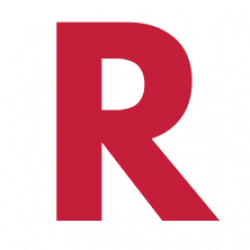Students looking for career opportunities, resume reviews, and job search strategies can get advice from a counselor at the Career Development Center on the sixth floor in the Arkansas Union.
The center provides a variety of ways employers can connect with the diverse employment pool of hundreds of UA students.
“Students can meet with a career counselor and that counselor will help them update their [social media] profile and work with them on that,” said Rickey Lee Booker Jr., director of UA Career Programs.
“I also work for the Graduate School of International Education, but primarily I help students through appointments like resume reviews and walk-in interviews and career counseling,” said Cady Stebhen, Career Counselor and Graduate Assistant. “With the graduate school I do professional development and presentations and professional development blogs. I also supervise to student interns and assist them with their own professional development as well as their social media and public relations positions.”
Most of Stebhen’s graduate student presentations are tailored for careers after graduate school. Stebhen also said she presents on “social media and conferences and how to job search. Overall, it’s like through those presentations, and then anytime they come in here those resume reviews or job interviews tips or anything like that.”
Networking and having an online presence are key concepts that career counselors want students to capitalize on, Stebhen said.
“LinkedIn has a lot of great resources like the alumni search,” she said. “The alumni search is a way to connect with alums in the way of a job or position that a student is interested in. It’s just way to get their foot in the door.
“We also recommend that they have a really great and updated LinkedIn and Handshake profile because job positions are posted on there all the time. Your LinkedIn is a way to communicate more in all of your experiences versus a one-page resume if they are going into an industry job,” Stebhen said.
Booker also thinks that LinkedIn can help students with their job search.
“The key thing about LinkedIn which is huge, is recommendations,” Booker said. “People that you work with who are also on LinkedIn can also recommend you and you can see people and what they said about you and different projects that you’ve worked on.
“So, when you see 20 or 30 or 40 recommendations it really makes you think ‘wow that’s a lot of people who work with that student or person and they can really get a feel for who you are and so that’s how companies are now going and recruiting students with all these recommendations and skills on LinkedIn.
“Companies can just go in and see that and you won’t even have to submit anything,” Booker said. “You definitely want to get some students and some faculty and staff and other people you have worked with. Recommendations are a more prominent thing now more so than skills and endorsements.”
Erica Estes, the director of Employer Relations for Fulbright College of Arts and Sciences helps hundreds of students a year who are trying to find jobs after graduation.
Her advice?
“Students should be spending about 60 percent of their time connecting with professionals or with people that will help them; that could even be another student who has worked and done an internship with a company. And 30 percent is actual opportunities and then 10 percent is actually applying. And a lot of times I think that gets reversed,” Estes said.
Stebhen said that when she looks through students’ resumes reviews that students should rather highlight their accomplishments rather than duties they’ve performed.
“We see it all the time that students at any level will just list out what they do in their day-to-day and most of the time if you are applying for something within the same field or industry they already know what your position does,” Stebhen said. “So, because of that they don’t need to be told and we recommend to students that they should highlight accomplishments or ways that they’ve stood out or to scale with what they’ve done. To highlight transferable skills and to highlight how they’ve stood out and how they’ve learned something maybe different from other people.”
